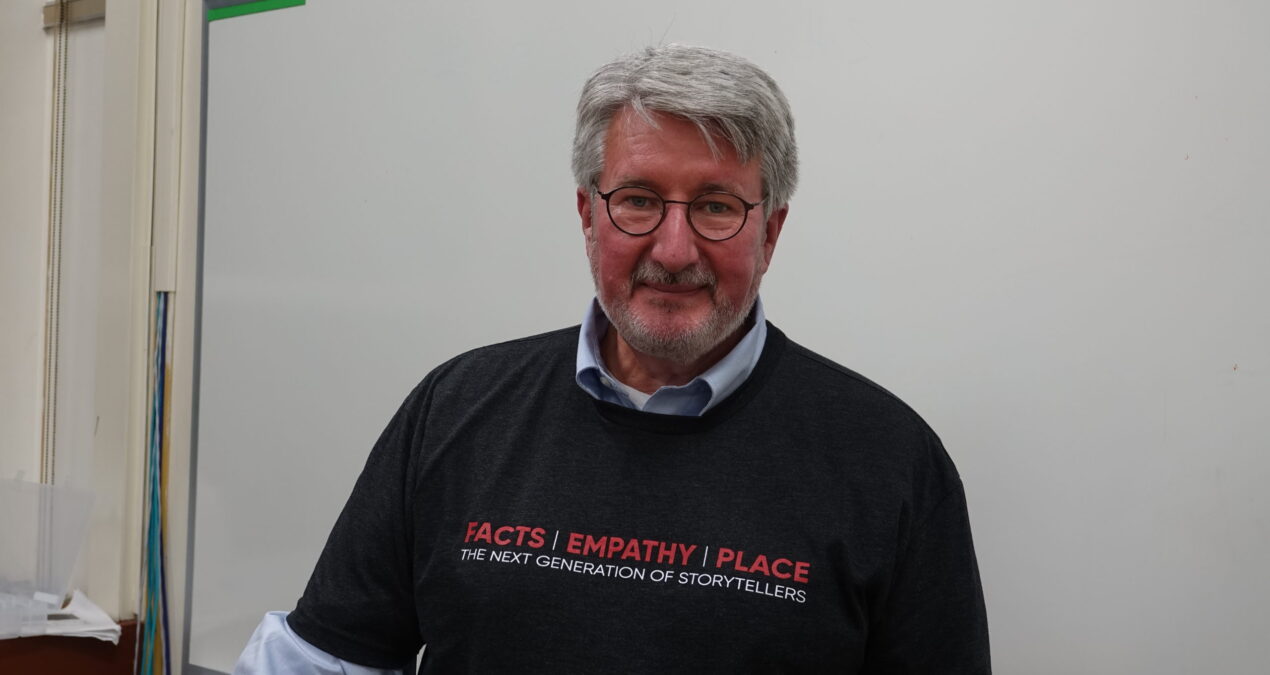JAMAAL WAIREGI, Staff Writer—
Journalism, approved as a major and minor last spring, debuts in Denison’s curriculum this coming spring semester. The success and overwhelming response to the Narrative Journalism focus at Denison has paved the path for this exciting new endeavor. Combining journalism and other disciplines of study can give real value to students’ work; Alan Miller and Connie Schultz, paragons of the journalism sphere, demonstrate why you should invest in these new pursuits.
Alan Miller, executive editor of the Columbus Dispatch and former member of The Denisonian, will be teaching both entry level and advanced journalism classes beginning this spring semester. Members of the Denisonian met with Miller on September 28th and engaged in a conversation of how to create faithful and masterful stories through the medium. “There’s nothing like planting your flag in a really good story,” Miller says, calling on the “energetic, engaging, passionate students” to. Miller revealed the inner workings of processing, editing, and sharing articles. But most importantly, Miller highlighted the impacts one can achieve with journalism: “You can change lives with these stories.”
Leaders of the Denisonian also encouraged students to find passion in journalism, inviting students to join the newspaper; “[write] something that you’re proud of,” Aaron Skubby, an editor-in-chief of the Denisonian, says in encouraging students to join the organization. Rohan Arora, another editor-in-chief, increases this sentiment. Interested in long-term members of the school newspaper, he wants students to “see the impact of their work.”
The true extent to which journalism can affect the lives of others is made clear through the works of Connie Schultz. Schultz is a 2005 Pulitzer Commentary Prize winner and her works on the Cleveland Plain Dealer and the Creator’s Syndicate have been nationally syndicated. A renowned columnist and novelist, she spoke to Denison students on September 28th about her experiences writing powerful stories. “Connie seems to not only see but to understand and give voice to the voiceless,” says Michael Croley, introducing Schultz. She injects the idea of vulnerability, sentiment, and empathy in writing. “I am accustomed to telling stories that don’t directly… affect me.” Her works surround those who need a voice, an outlet for their stories to be told. Her newest novel, The Daughters of Erietown, covers grief, recovery, and understanding.
“Most people want to think they don’t have anything in common with much of the world,” Connie says, illuminating the importance of a journalist’s work. “Our job is to show them how they’re mistaken. We are the connectors.”

